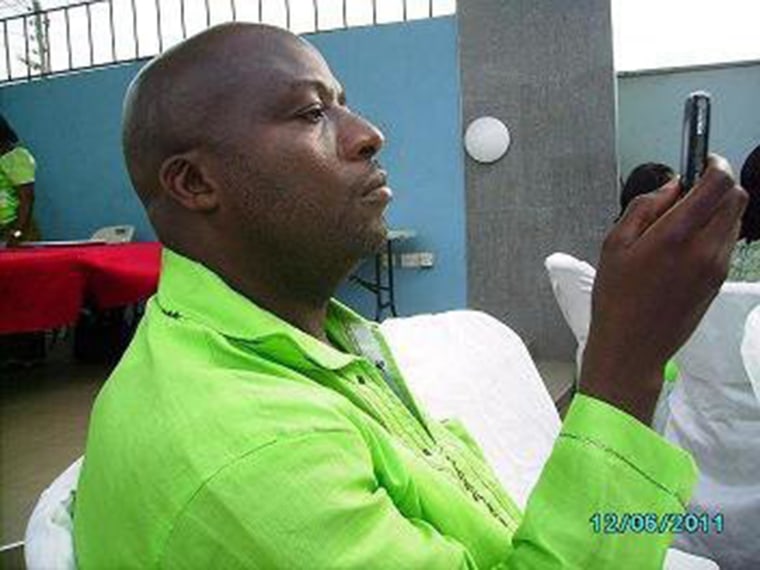Texas Gov. Rick Perry and other officials told a news conference Wednesday that the man with the first case of Ebola diagnosed in the U.S. States had contact with up to 18 people, including "some school-age children."
"The children have been identified, and they are being monitored," the governor said.
Dr. Christopher Perkins, medical director of the Dallas County Department of Health and Human Services, said there were five people in the patient's immediate household and about 12 to 18 other "contacts" — including members of an ambulance crew — all of whom would be monitored closely for 21 days.
Dr. Zachary Thompson, director of the county health department, told NBC News late Wednesday that he wouldn't be "shocked" if a second case of Ebola were to emerge among those being monitored. But "there has not been any indication that any of the contacts that we have been tracking show any signs or symptoms," he said.
Officials said five students at two elementary schools, a middle school and a high school had had contact with the patient over the weekend. They are being "monitored" at home but are not quarantined. The schools are still open.
The victim, a Liberian man visiting the Dallas area named Thomas Eric Duncan, is being treated at Texas Health Presbyterian Hospital in Dallas. Perry was joined by Dr. David Lakey, commissioner of the Texas Department of State Health Services.

"They have a whole ward that's dedicated to the care of this individual," said Lakey, "professionals who are very competent and are doing it in a safe environment with compassionate care." He also reiterated that the disease can be spread only by direct contact with bodily fluids of a sick patient. Duncan's condition was given as serious but stable.
"This is not West Africa. This is a very sophisticated city, a very sophisticated hospital," said Lakey. "The chances of it being spread are very, very small."
"This is all hands on deck," said Perry. "We understand that, and we've got great local partners, and everyone has their marching orders and understands the importance of good collaborations [and] good partnering from the local level all the way up" to the U.S. Centers for Disease Control and Prevention.
Blood tests by state and federal health officials confirmed the Ebola diagnosis Tuesday. Duncan had recently flown from Liberia to Dallas to be with relatives. United Airlines confirmed Wednesday that the U.S. Ebola patient flew at least part of the way to the U.S. with it on Sept. 20: From Brussels, Belgium, to Washington, D.C., on Flight 951 and then from D.C. to Dallas-Fort Worth on Flight 822.
The patient actually first went to the hospital two days after he first felt sick on Sept. 24, but he was allowed to go home and was then transported back by ambulance on Sept. 28, officials said.
Dr. Mark Lester, an executive with the hospital, said that despite a nurse's using an Ebola checklist to diagnose the man, the patient was allowed to go home because the first team that assessed him felt he had "a low-grade common viral disease."
He refused to characterize the move as a "misstep" but said the procedures taken were being investigated.
IN-DEPTH
- What We Know About the Texas Ebola Patient
Director: CDC Monitoring a 'Handful' of People Connected to U.S. Ebola Case